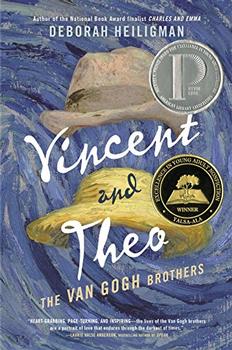Summary | Excerpt | Reviews | Beyond the book | Read-Alikes | Genres & Themes | Author Bio

In this mesmerizing novel, Ethan Canin, the New York Times bestselling author of America America and other acclaimed works of fiction, explores the nature of genius, jealousy, ambition, and love in several generations of a gifted family.
Milo Andret is born with an unusual mind. A lonely child growing up in the woods of northern Michigan in the 1950s, Milo gives little thought to his talent, and not until his acceptance at U.C. Berkeley does he realize the extent, and the risks, of his singular gifts. California in the seventies is an initiation and a seduction, opening Milo's eyes to the allure of both ambition and indulgence. The research he begins there will make him a legend; the woman, and the rival, he meets there will haunt him always. For Milo's brilliance is inextricably linked to a dark side that ultimately threatens to unravel his work, his son and daughter, and his life.
Moving from California to Princeton to the Midwest and to New York, A Doubter's Almanac explores Milo's complex legacy for the next generations in his family. Spanning several decades of the twentieth and twenty-first centuries, A Doubter's Almanac is a suspenseful, surprising, and deeply moving novel, written in stunning prose and with superb storytelling magic.
What sets Canin’s story apart from other dysfunctional family novels is the awesome writing, the mid-plot switch of narrator augmented by the juxtaposition of Milo’s superhuman intelligence and his addiction. It is indicative of Canin’s own genius that he makes all that – plus mathematics references that sent me to Google more than once – work superbly...continued
Full Review
(638 words)
This review is available to non-members for a limited time. For full access,
become a member today.
(Reviewed by Donna Chavez).
In A Doubter's Almanac, Hans Andret, a mathematical genius, checks into a rehab facility, seeking treatment for his addiction. In a counseling session, his therapist, Matthew, asks Hans why he suddenly brought his addiction out in the open and suggests that Hans wished to be caught.
 When Hans protests that such a notion would be ludicrous, Matthew says: "Genius is a degenerative psychosis…belonging to the group of moral insanity." He then explains this is a quote from: "Cesare Lombroso. A criminologist. He died a hundred years ago, but now psychologists are starting to agree with him. Fewer dopamine receptors or something like that. Psychosis and inventiveness seem to run along a kind of continuum."
When Hans protests that such a notion would be ludicrous, Matthew says: "Genius is a degenerative psychosis…belonging to the group of moral insanity." He then explains this is a quote from: "Cesare Lombroso. A criminologist. He died a hundred years ago, but now psychologists are starting to agree with him. Fewer dopamine receptors or something like that. Psychosis and inventiveness seem to run along a kind of continuum."
Indeed, Lombroso did write ...
This "beyond the book" feature is available to non-members for a limited time. Join today for full access.

If you liked A Doubter's Almanac, try these:

by Deborah Heiligman
Published 2019
From the author of National Book Award finalist Charles and Emma comes an incredible story of brotherly love.

by Ann Patchett
Published 2017
The acclaimed, bestselling author - winner of the PEN/Faulkner Award and the Orange Prize - tells the enthralling story of how an unexpected romantic encounter irrevocably changes two families' lives.
Sometimes I think we're alone. Sometimes I think we're not. In either case, the thought is staggering.
Click Here to find out who said this, as well as discovering other famous literary quotes!